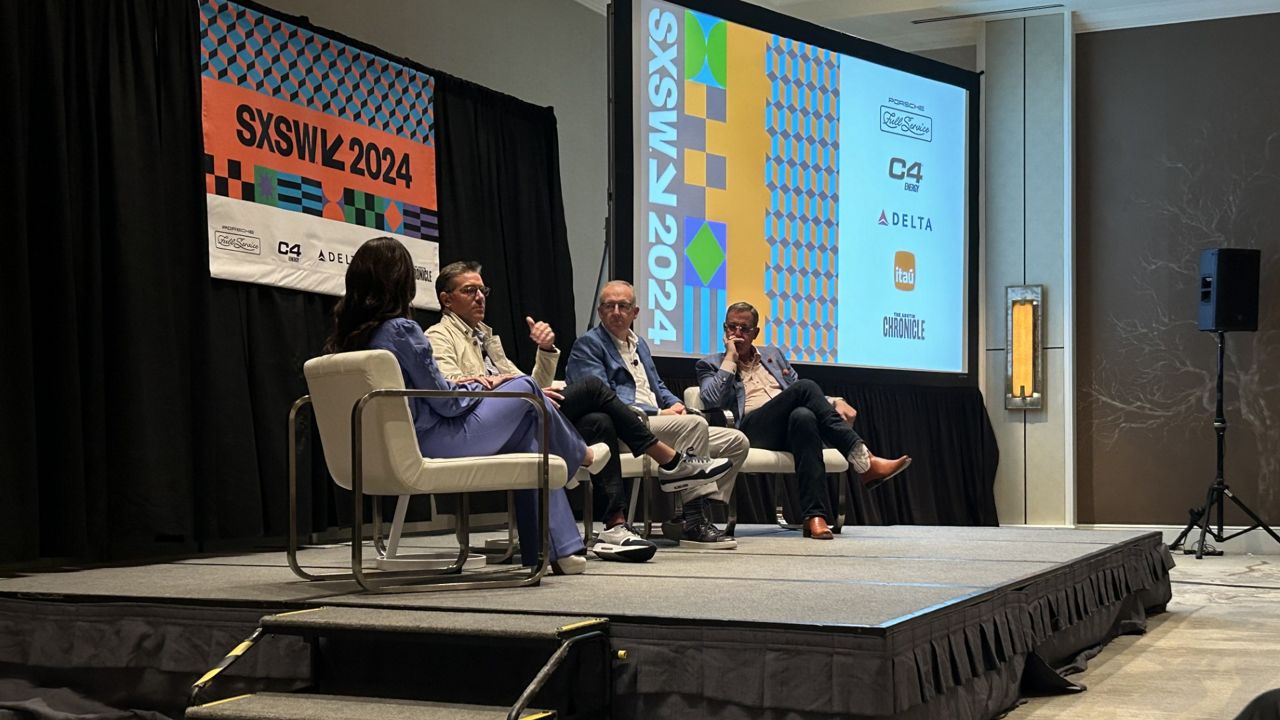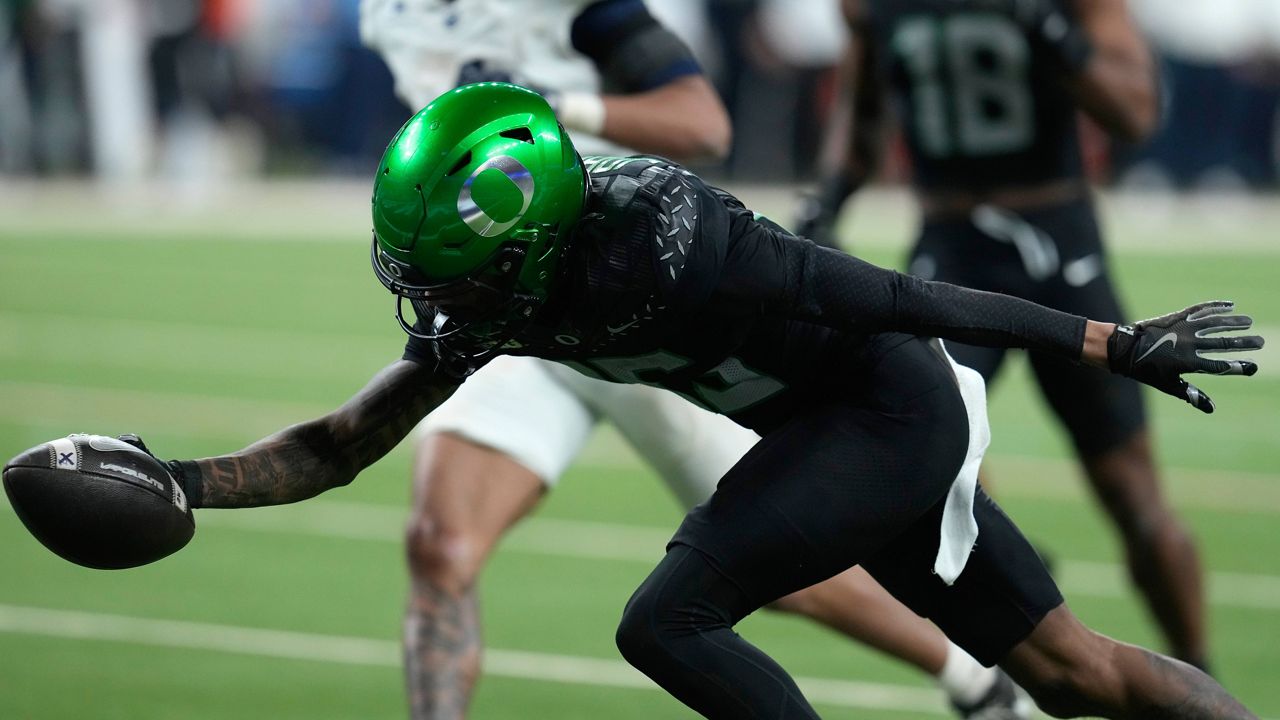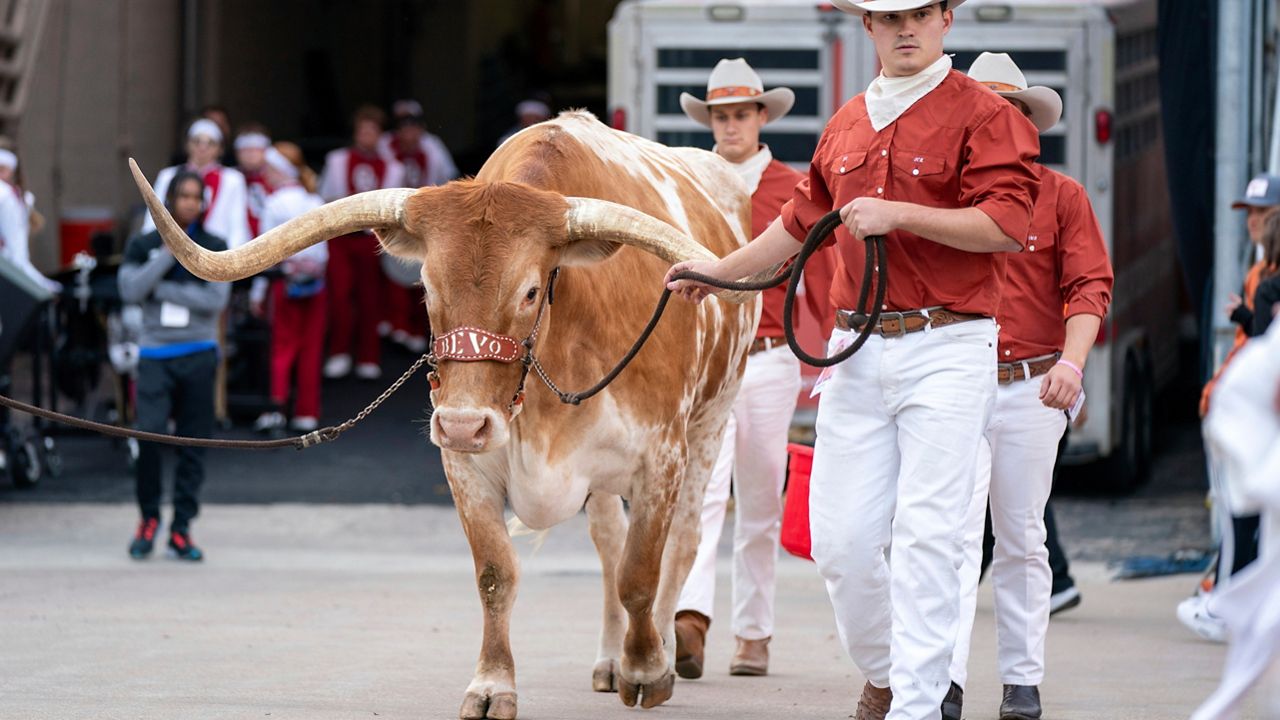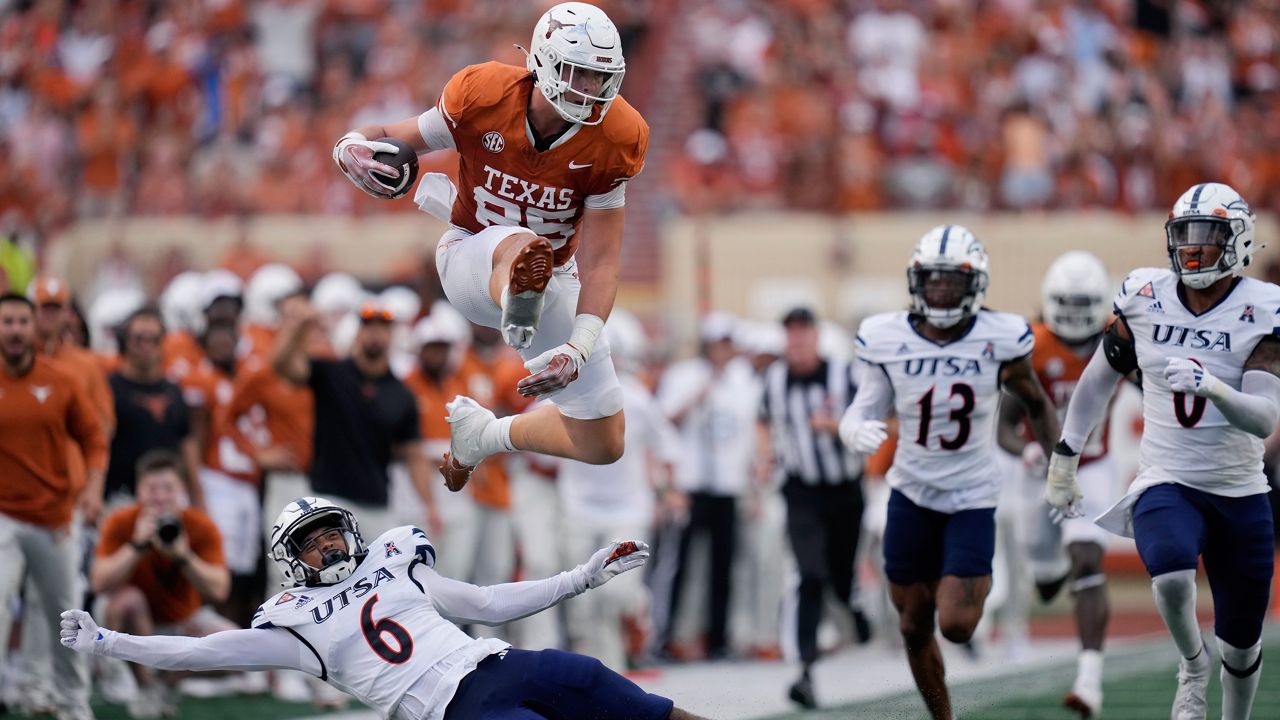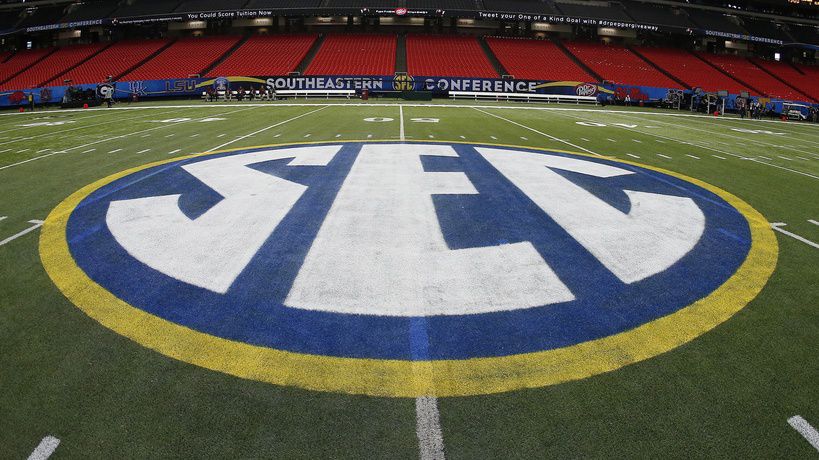AUSTIN, Texas — The “Wild West” and “chaos” were just a couple of ways that both current athletes and conference officials called the landscape of name, image and likeness (NIL) rules in college athletics.
During the first weekend of SXSW, two different panels were held to discuss the landscape of NIL, one with officials and one with former and current college athletes.
Southeastern Conference (SEC) Commissioner Greg Sankey sat down with the University of Texas Athletic Director Chris Del Conte and Learfield CEO Cole Gahagan to talk about the present and future of college athletics Saturday.
While Sankey didn’t mince words calling the NIL situation “chaos,” he struck a hopeful tone about the future and how NIL deals can be used to help elevate college athletes. But, he did ask for a national law to equalize the playing field when it comes to NIL.
“If you've ever had the literal toothpaste tube moment in the bathroom, it's difficult to wipe from the countertop,” said Sankey in an analogy about the state of NIL across the country.
Currently, 32 states have passed different NIL laws, since the Supreme Court ruled in 2021 that college athletes could benefit from the use of their name, image and likeness, while five others have proposed NIL legislation. The rest currently do not have any laws on the books regulating NIL.
Sankey said that it has been a “race to the bottom” when it comes to the regulation of NIL, and he worries that if federal legislation is not passed, we could see an end to national competition.
The SEC commissioner said his team has been trying to lobby Congress to pass a federal law on NIL but says Congress has been ineffective with its day-to-day business as of late.
“Congress is challenged right now with the normal business that it must do,” said Sankey. “And while we've worked to try to resolve the things that we'd like to see result at the Congressional level, to say that's a steep hill to climb is the understatement.”
On Tuesday, Sen. Ted Cruz said there was a 50-50 chance of Congress passing legislation to standardize how athletes can be compensated for their names, images and likenesses. Cruz had previously estimated a 60-40 chance of a bill passing before the general election in November.
“We deserve better than this patchwork. We deserve better than no consumer protection, no protection for us,” said Sankey. “We deserve better than a fully unregulated marketplace.”
Gahagan, whose company Learfield works with UT on brand deals and sponsorships, had a little more “provocative” and “edgy” answer about how college athletics got here and called out the NCAA leadership.
“We got here because, I think, of various lapses in judgment at the highest level of leadership in the NCAA,” Gahagan said. “One of those examples is even when the decree came from the NCAA to its membership body that name, image and likeness was now permitted for student athletes, there were no parameters wrapped around how the student athletes could go and actually make money in conjunction with the school.”
While Del Conte says he is all for the changes that NIL has brought, he believes what is being lost in the conversation is the fact that student athletes are students first, with some of them receiving a free education through scholarships.
“In this day and age we’re talking about loan forgiveness at $1.2 trillion, and yet, our student athletes are getting free education majority without any debt to their colleges,” Del Conte said. “So I’m stuck in this really strange time period. I understand why we have to have change, and I’m all for that.”
Starting in July, Texas will officially be a part of the SEC along with Oklahoma, leaving the Big 12 behind. Their departure comes along with major conference realignment across the country, with the Pac-12 ceasing to exist.
This change means Texas athletes will have to adjust to a whole new conference, and three of those athletes took the stage at SXSW Sunday to talk about their experiences with NIL and the ever-changing landscape.
The panel featured Atlanta Falcons running back and former Longhorn Bijan Robinson, track and field star Sam Hurley and Texas volleyball player Ayden Ames, who was named the Gatorade National Volleyball Player of the Year in January.
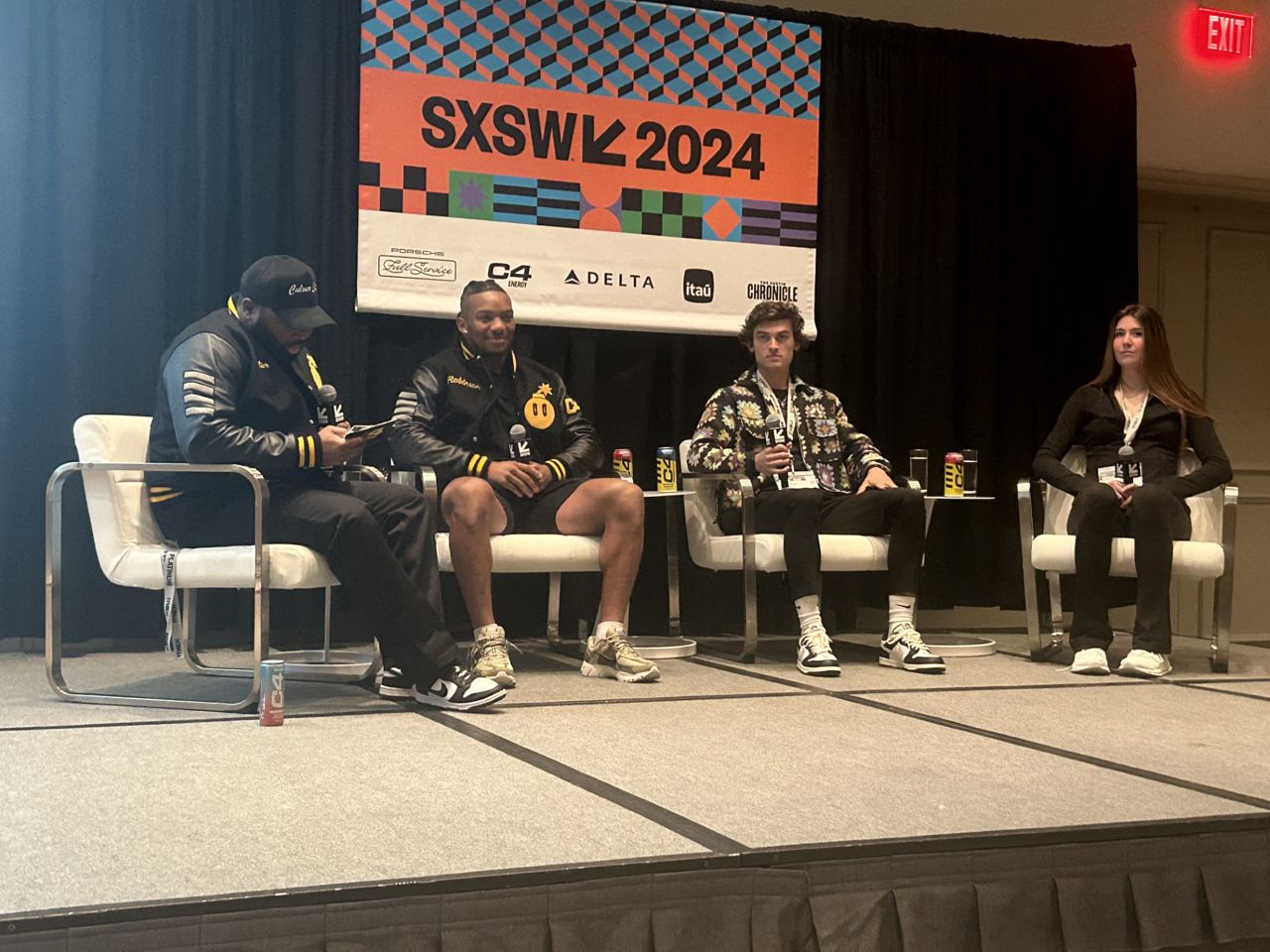
Robinson said he was a sophomore when the Supreme Court’s decision came down, and he described that time as the “Wild, Wild West.” Within a week of the decision, he had a marketing person helping him out.
“I mean that first start of it was definitely a confusing process,” Robinson said. “Because, you know, nobody knew what the rules were, and nobody knew how much you can put in and how much you can get out from it.”
Robinson said Texas had a lot of rules about who their athletes could work with, but he questioned it.
“Why can we not go venture out into and do our own things? And they just said, I mean, this is just like the school policy,” said Robinson. “I kind of took the risk…Somebody reached out to me, a different brand, and I mean I just did it. But the school was on my butt.”
Hurley, who is one of Robinson’s good friends, came in a little later to the NIL market. He already had a substantial social media following, and after he enrolled at UT in January 2022, he started partnering with brands.
Hurley said he always puts his athletics first, but NIL has helped him out financially. He even has gone into real estate, with the help of his dad.
Ames was the youngest on the panel, having just turned 18 a couple of weeks ago, but she already has an eye for potential NIL deals. She is joining a back-to-back national championship volleyball team and is bringing in her own accolades as one of the best high school players in the nation.
Both Hurley and Robinson gave her advice on navigating the influencer market, and Robinson talked about how women’s sports are taking over the country, with stars like Caitlin Clark at the helm.
“Another thing that I hate is they always say like, ‘women can’t get what the men get,’ and I’m like, that’s absolutely false,” Robinson said. “That’s not true because, you know, I think that women in sports are becoming the thing right now, and it’s kind of taking over the game.”
The panel ended on a fun note with Robinson and Hurley answering the question of what were the first and worst things they purchased with their NIL money.
Robinson took the cake with the funniest answers, saying he bought an 85-inch TV when he got his first influx of cash, and he spent $5,000 on in-app purchases in the mobile game Bullet Echo.
Hurley said he couldn’t think of a bad purchase he made, but he did buy a Dodge Charger Scat Pack that he loves but questions whether it was too much.
“I bought a Scat Pack Charger, which is super cool for like a month, and then, it’s like, a Camry would be just fine,” Hurley said.
While Robinson starts his second season with the Falcons, Hurley and Ames are both continuing and starting their college athletic careers, with the NIL landscape continuing to evolve.






